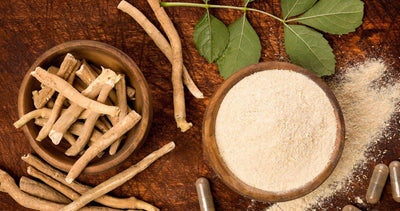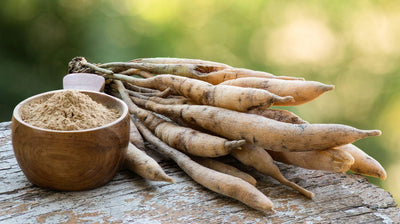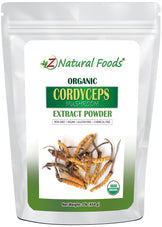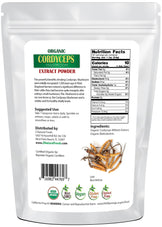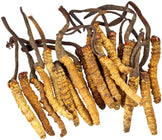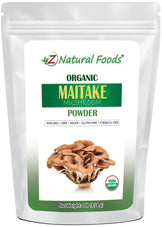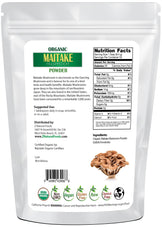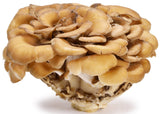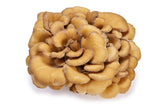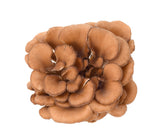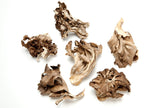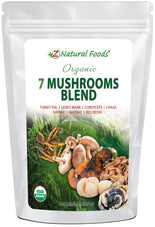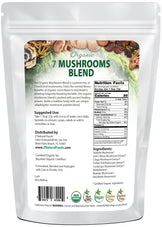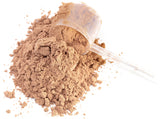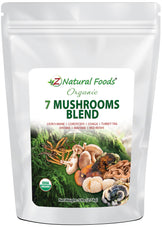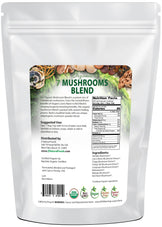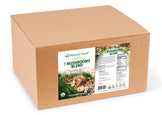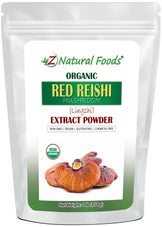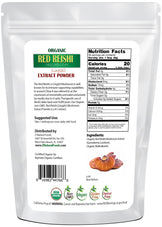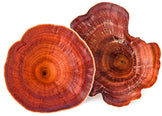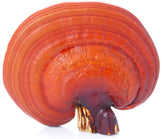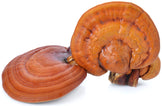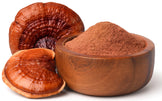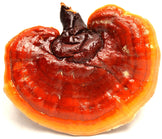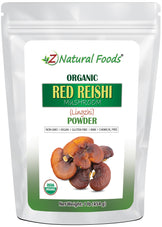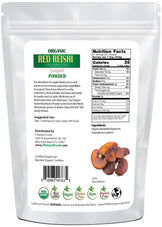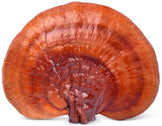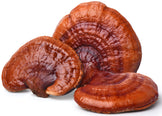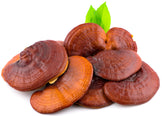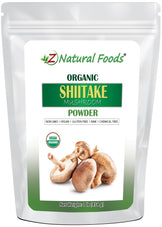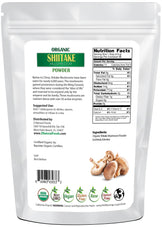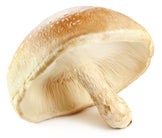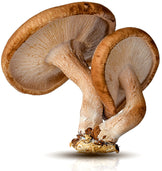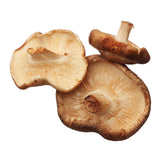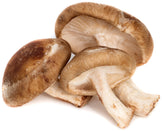Description
Description
Grown deep in Northeastern Japan, Maitake Mushroom is a popular adaptogen with a reputation as the “King of Mushroom.”
Because of its popular taste and health benefits, Maitake Mushroom has been consumed for over 3,000 years.
Easily identified because Maitake forms large clumps on tree roots, Maitake was initially used in Asian traditional medicine. Maitake Mushroom is eaten as part of traditional cuisines around the globe but is also known for its therapeutic potential.
What is Maitake Mushroom used for?
Maitake is a natural source of plant compounds, vitamins, and minerals which may explain its traditional uses, including Maitake’s possible ability to:
This healthy fungi has an earthy aroma and crunchy texture and is said to grow up to three feet wide and can even weigh as much as 50 pounds. [8]
Maitake Mushroom has been used in various ways to promote health, wellness, and vitality. In this article, we will discover the many uses of the Maitake Mushroom and explore how safe Maitake Mushroom is to consume.
5 Traditional Uses for Maitake Mushroom
1. Maitake Mushroom may nourish the Immune System
The medicinal properties of the Maitake mushroom have been studied for decades. Maitake has the ability to nourish the immune system by potentially activating effective cells such as macrophages, natural killer cells, and T cells.
Mushroom’s antiviral activity has even been the subject of research against some infections and has been confirmed by the Japan Institute of Health. It is thought that Maitake contains immune-changing polysaccharides that may reduce the severity of certain illnesses.
In addition, Maitake is also used to boost immune function by helping prevent white blood cell numbers from falling in people given chemotherapy and radiotherapy. This may help increase antibody levels in healthy people. [1]
2. Maitake Mushroom contains a polysaccharide called Beta-D-Glucan which may support overall health
The primary polysaccharide in Maitake is beta-D-glucan, which may help support the immune system by fighting microbes. With its ability to support a healthy immune response, beta-D glucan may provide a positive response to fighting off infection.[1]
Beta-D glucan may also support healthy cholesterol levels by enhancing artery functionality and overall cardiovascular health. Additionally, Beta-glucan may promote the management of glucose levels and may help activate insulin receptors to support insulin resistance effectively. [2]
3. Maitake Mushroom may support healthy aging
Furthermore, Maitake Mushroom may support healthy blood pressure levels. For example, a study involved forty mature female rats divided into five groups of eight. These rats ingested Maitake over a four-week study period and were able to stop the gradual elevation of systolic blood pressure.
The results indicate that Maitake Mushroom lessens age-related hypertension, enhances insulin sensitivity and supports inflammatory responses---all of which lead to a longer, healthier lifespan. [3]
4. Maitake Mushroom is rich in vitamin D, selenium, and vitamin B6
Maitake Mushrooms contain nutrients that may support the immune system, including: [4]
- Vitamin D---which aids in cell growth and supports inflammatory responses
- Selenium—helps your body produce antioxidant enzymes to prevent cell damage
- Vitamin B6—assists your body in forming red blood cells, proteins, and DNA
Additionally, Maitake contains polysaccharides that act as a prebiotic, promoting good gut bacteria. These polysaccharides support strains such as Lactobacillus and Bifidobacterium, which remain undigested, and can reach the colon where these bacteria live. [4, 9]
5. Maitake Mushroom is a source of other vitamins, minerals, and antioxidants
In addition, Maitake Mushrooms may also be used to support brain health. With its high antioxidants, Maitake Mushroom may help reduce oxidative stress, supporting healthy memory function. The antioxidants in Maitake may aid in stopping brain cell death—and may allow you to reduce memory loss. [5]
A delicious, soft-fleshed polypore with excellent nutritional properties, Maitake Mushroom, is also used to support insulin and lipid levels in plasma. Maitake mushrooms may help increase insulin sensitivity and decrease insulin resistance—and may be effective in managing healthy blood sugar levels in humans. [6]
Maitake Mushroom is also a natural source of minerals and contains potassium, calcium, magnesium, B vitamins, and amino acids. Beyond that, this mushroom’s amazing benefits may include:
- Supporting healthy blood sugar levels
- Aiding digestion by regulating the stomach and intestines
- Supporting blood pressure levels
- Boosting energy levels
- Supporting healthy insulin resistance
- Helping the body reduce cellular mutations
- Supporting a healthy immune response
Is Maitake Mushroom safe?
Maitake side effects are rare and usually mild, and most people consume it without complications. In fact, Maitake is commonly eaten and poses no risk in either raw or cooked form when enjoyed as part of a healthy diet. [7]
Maitake Mushroom is used for many beneficial purposes and is a safe and effective fungus. Whether boosting your immune system, enhancing brain health, or supporting insulin levels, Maitake Mushrooms can increase vitality and improve general wellness.
References
- Maitake (n.d.) Kaiser Permanente. https://wa.kaiserpermanente.org/kbase/topic.jhtml?docId=hn-2127000
- Brennan, D. “Maitake Mushroom: Health Benefits, Nutrition, and Uses.” Web MD (2020, November 17). Retrieved from https://www.webmd.com/diet/maitake-mushroom-health-benefits
- Preuss, H. “Maitake Mushroom Extracts Ameliorate Progressive Hypertension and Other Chronic Metabolic Perturbations in Aging Female Rats.” International Journal of Medical Sciences, 7 (4): 169-180, https://www.medsci.org/v07p0169.htm, Accessed September 19, 2022.
- 7 Benefits of Mushrooms. “UCLA Health.” (2022, January 24). Retrieved from https://connect.uclahealth.org/2022/01/24/7-health-benefits-of-mushrooms/
- Birben, E., Sahiner, U., Sackessen, C., Erzurum, S., Kalayci, O. “World Allergy Organ.” Oxidative Stress and Antioxidant Defense, 5 (1): 9-19, 2012, https://www.ncbi.nlm.nih.gov/pmc/articles/PMC3488923/
- Hong., L. Xun., M., Wutong, W., “Anti-diabetic effect of an a-glucan from the fruit body of maitake (Grifola frondosa) on KK-Ay mice.” Journal of Pharmacy and Pharmacology. Retrieved from https://academic.oup.com/jpp/article/59/4/575/6141672?login=false
- Wilson, D., “Everything You Should Know About Maitake Mushrooms”. (2017, October 12). Retrieved from https://www.healthline.com/health/food-nutrition/maitake-mushroom
- Hen of the Woods (Maitake): https://mdc.mo.gov/discover-nature/field-guide/hen-woods-maitake
- Mushrooms: https://www.hsph.harvard.edu/nutritionsource/food-features/mushrooms/
